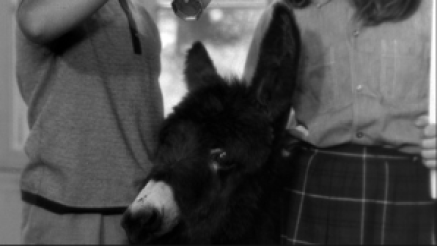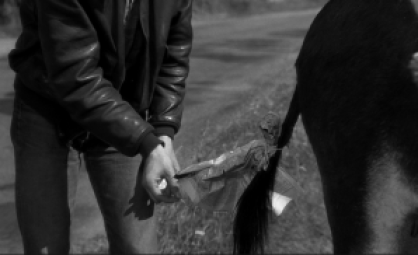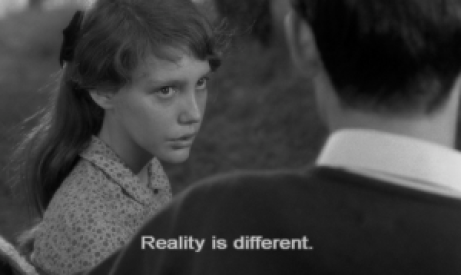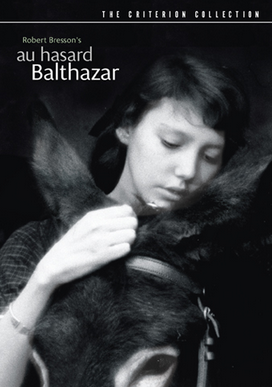If you’ve never subjected yourself to the heart-wrenching experience of watching Robert Bresson’s Au Hasard Balthazar, then just know that Balthazar, the lovable abused donkey that serves as a protagonist, is you. Granted, he’s also supposed to represent a Christ-like figure, but that’s beside the point.
http://www.youtube.com/watch?v=vbXB3xN35p8
The slow death of Balthazar begins almost as soon as he is purchased by a pastoral family that lives on the land in the French countryside. A little girl named Marie (Anne Wiazemsky) urges her father to buy Balthazar more so that she can have him as a pet than for actual use as a farm animal. Her attachment to the donkey is strong at first, as she plays games with him and her best friend/childhood crush Jacques (Walter Green). But as she grows older, her interest in Balthazar wanes, even when he is malevolently treated by other owners.

Instead, Marie becomes more preoccupied with a troubled youth named Gerard, a teenage boy hired by her father to make runs using Balthazar. What they don’t know, however, is that Gerard is also using Balthazar to smuggle goods across the border. Jacques, meanwhile, continues to profess being in love with Marie and wants to marry her per their childhood promise to each other. Marie couldn’t care less as she falls deeper into the seedy clutches of Gerard.

Balthazar, on the other hand, is on the precipice of death, which leads Arnold (Jean-Claude Guilbert)–presumably a neighboring farmer (though little back story, if any, is given in this film)–to take possession of him. Claiming that time on the road did him good, Arnold continues to get the most out of Balthazar, often through beating him with a bottle (one smidgen of back story is that he’s an alcoholic). Like Balthazar, you, too are subjected to unnecessarily malevolent handling: Just think of yourself at work, on your commute and among family or so-called friends.

Another interpretation (and there are many) of Balthazar is that his existence is so random, his fate so out of his own control that, indeed, he is just like every other human to have walked this occasionally kind, but mostly brutal earth. How Balthazar comes to his end is, in fact, another case in point of the arbitrariness of destiny. In all of these ways, Bresson’s film is both a comfort and an additional source of sadness in contemplating the way life plays out.






















